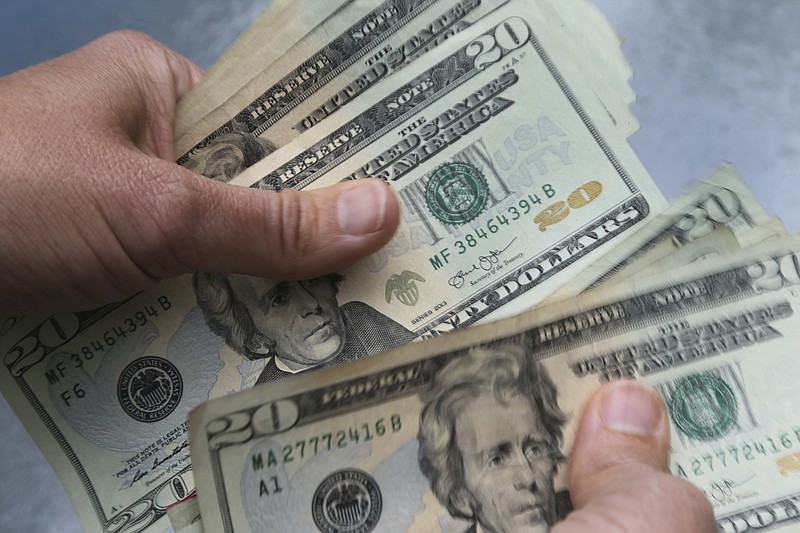By KEN SWEET
AP Business Writer
NEW YORK (AP) -- The number of Americans who do not have a bank account fell to a record low last year, as the proliferation of online-only banks and an improving economy is bringing more Americans into the traditional financial system.
A new report from the Federal Deposit Insurance Corp. issued Tuesday found that 4.5% of Americans -- representing approximately 5.9 million households -- were without a bank account in 2021. That's the lowest level since the FDIC started tracking the data in 2009 and down from 5.4% of Americans in the 2019 survey data.
The decline in unbanked households may partially be attributed to the coronavirus pandemic. States and the federal government distributed trillions of dollars in stimulus to Americans after COVID-19 shut down the U.S. economy in March 2020. The benefit programs largely needed a bank account to send the funds quickly to those impacted.
But the FDIC attributed most of the improvement to the stronger economy in 2021, as the coronavirus pandemic restrictions largely expired and there were low levels of unemployment.
Black and Hispanic households still remain much more likely to not have a bank account, although those figures are improving. Roughly 11.3% of Black households are without a bank account, down from 13.8% two years earlier. Among Hispanic households, that figure declined to 9.3% from 12.2%.
The primary reasons for why someone would choose to be unbanked were largely unchanged from previous surveys. One in five unbanked households said not having enough money to maintain an account was the main reason they went without one -- a sign that being unbanked remains an economic inclusion issue.
The FDIC started tracking unbanked Americans in 2009. In the 2011 data, the number of Americans who were unbanked rose significantly as a result of the Great Recession. While Americans kept their bank accounts through the coronavirus recession, there is a chance the number of unbanked Americans could rise in the future if inflation continues to damage the economy and unemployment increases.
Other households had privacy and trust issues regarding banks. Major companies like Amazon have been tracking consumer data via credit card usage for a while now, but banks are taking advantage of this data too.
Americans outside the traditional financial system face numerous obstacles with their daily finances, which is why policymakers push so hard to get unbanked households to open a savings or checking account. Check-cashing services, utility payment services, rent payments without a bank account often come with fees, money that a person with a bank account would not be subject to.
New immigrants and refugees are also among the unbanked. Jhuma Acharya, a former refugee from Bhutan and a case manager with Community Refugee and Immigration Services in Columbus, said he sees an increase in clients calling him about businesses that won't accept their cash.
There's also been an increasing number of businesses that no longer accept cash as a form of payment, an issue that several state legislatures have started to address.
The survey also found that the percentage of what are known as underbanked households -- those who have a bank account but still use high-cost financial services like check cashing, pawn shops, payday loans, and remittances -- also declined.
The FDIC also found that roughly half of all American households used a non-bank payment service such as CashApp, Venmo or PayPal in 2021.
